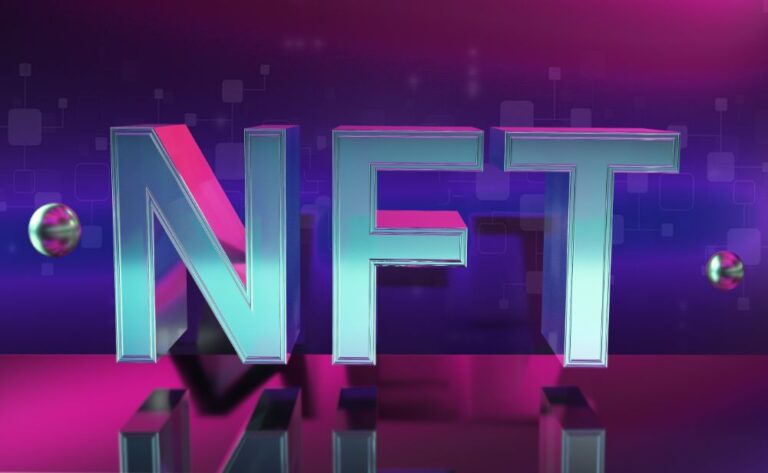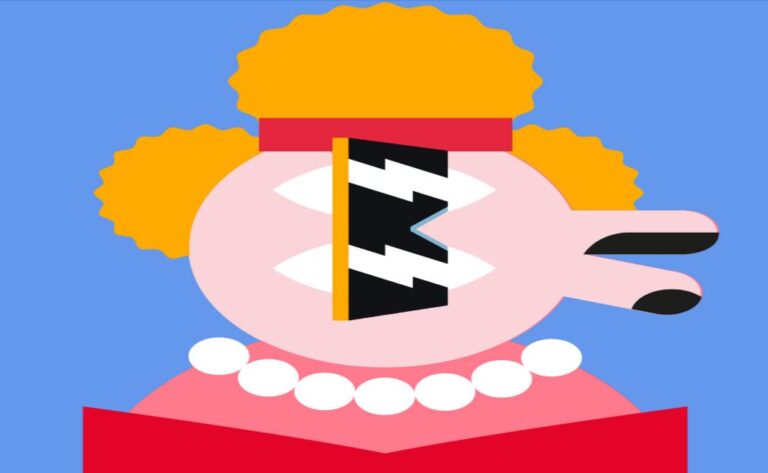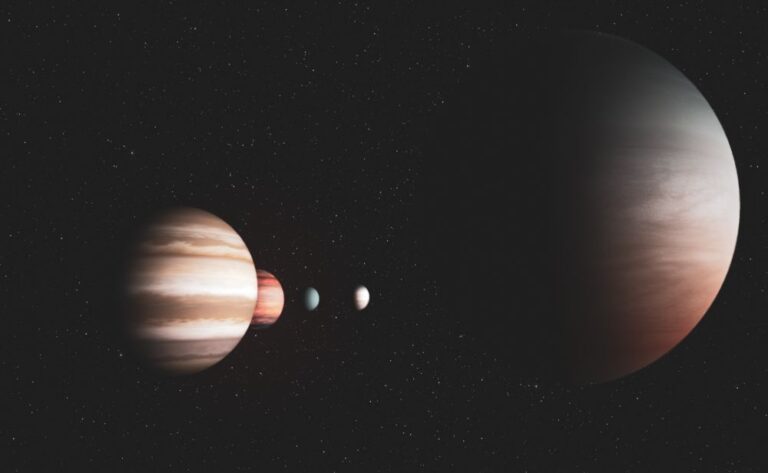
Will this AAA developer’s big investment in blockchain technology, P2E gaming, and Ubisoft NFTs, named Digits, backfire?
Whether or not conventional gamers like it, NFTs will have an impact on popular systems and game series. Will they be adopted by your favorite publisher or developer, is the question. They might choose to ignore P2E and NFT games while still utilizing blockchain technology in some capacity.
I’ll respond to these queries in a series of essays that investigate the positions on NFTs and blockchain technology taken by each AAA game developer, publisher, and console manufacturer.
Ubisoft is leading the drive in the use of blockchain technology and NFTs by AAA studios, as anyone who has been paying attention will know. Although the French company’s position is clear, are you aware of how much it has spent in a blockchain future?
How does Ubisoft fit into the game industry?
Ubisoft has constantly been a pioneer for the more than 25 years that I have been following the video game industry. The business has consistently operated at the cutting edge of technology. Count how many games Ubisoft has available for any major console launch.
Consider the company’s advancements in open environments and the blending of single-player and multiplayer experiences. Aside from that, esports.
Even in the realm of video game movies, it was the first to usher in a new age.
Even though Ubisoft doesn’t build consoles, its influence on gamers is apparent when we consider the brands it has built over the years. Rabbids, The Settlers, Heroes of Might & Magic, Far Cry, Anno, Petz, Watch Dogs, The Crew, TrackMania, Prince of Persia, Rayman, Splinter Cell, Rainbow Six, Ghost Recon, Assassin’s Creed, Just Dance, For Honor, Rabbids, and The Crew… I could continue. These games are fantastic.
Ubisoft is a force to be reckoned with as an independent publisher and developer with a market worth of US$6.5 billion. Its actions will have an effect on the industry, whether those effects are beneficial or negative.
What is the Strategic Innovation Lab at Ubisoft?
Since 2017, Ubisoft has been aggressively participating in the blockchain and NFT space, as gamers who have kept up with the industry know. It was already making significant investments in the scene before these labels ever made it into the social lexicon. The corporation established the Strategic Innovation Lab during this year. The duties of this internal department were described by Ubisoft as follows:
“For the development of games and the gaming industry as a whole, staying on the cutting edge of trends and technology is essential. This entails using the Strategic Innovation Lab at Ubisoft to not only predict what the next big thing might be but also to determine how Ubisoft teams around the world can absorb these trends and incorporate important lessons into their games. Among them is the blockchain trend.
Blockchain was therefore a key area of study for the Strategic Innovation Lab right once. Lidwine Sauer, the director of Insights and Trends at Ubisoft, made it clear at the time that the firm was also intrigued by the concept of NFTs.
“By putting a unique digital asset on a blockchain, you can trace who the owner is at any given time in a secure manner. It’s comparable to owning a Picasso. If it’s yours, it’s yours because it’s entirely unique. With the benefit of not being able to be taken from you, you can now own the equivalent of digital Picassos thanks to the blockchain.
Soon after, Ubisoft began speaking about its findings at newly formed blockchain-related conferences. It joined the Blockchain Game Alliance as a founding member in September 2018.
Additionally in 2018, Strategic Innovation Lab went so far as to create the blockchain game Hashcraft, which was never launched. In 2020, Ubisoft also licensed its beloved Rabbids brand for use in Cryptokitties, the first hugely successful blockchain game.
Blockchain by Ubisoft
Ubisoft investigated the possibility of switching their entire backend to blockchain around this time. For a while, the business considered licensing Microsoft’s Xbox Enterprise Blockchain Platform, which was housed on the Azure cloud infrastructure. According to the hypothesis, this blockchain would manage client spending, revenue sharing, and royalties.
At the time, there was speculation that the revenue sharing scheme designed for Rainbow Six esports teams would potentially make use of the blockchain. In September 2020, this was changed to R6 Share. Although this study did take place, Ubisoft has directly informed me that the studio finally chose against using Microsoft’s technology.
Instead, the business launched the Strategic Innovation Lab’s Entrepreneurs Lab program. It recognized and supported a number of companies operating in the area.
In addition to offering these initiatives its own impressive perspective, Ubisoft was able to use these companies to learn more about what was occurring in the blockchain industry. Dapper Labs, Sky Mavis, Starchain Gazer, and Sorare are a few of the well-known blockchain development studios that have come out of the Entrepreneurs Lab.
With Sorare, Ubisoft assisted in the introduction of a fantasy league NFT game based on Belgium’s premier soccer division, the Jupiter Pro League. One Shot League was the name of the game.
Tezos and Ubisoft
Early in April 2021, Ubisoft decided against using Microsoft’s blockchain technology and invested in Tezos. Compared to Ethereum, this blockchain uses a much more energy-efficient proof-of-stake hash algorithm, and its gas prices are lower. This cooperation served as the nucleus for Quartz, which I shall discuss in a moment. At the time, Nicolas Pouard, the vice president of Ubisoft’s Strategic Innovation Lab, said:
“We’re excited to become a corporate baker in the Tezos ecosystem. Due to its proof-of-stake consensus algorithm, blockchain, in the opinion of Ubisoft, has the potential to open up new possibilities for both players and developers. Thanks to this new partnership, we will be able to continue our innovation efforts in an environment that supports our environmentally friendly approach.
Digits, Ubisoft Quartz, and the metaverse
Ubisoft began production on the most revolutionary NFT-related project in the history of AAA games on December 7, 2021. Quartz is the name of the NFT platform, while Digits are the name of the NFTs it supports. Some gamers were taken off surprise by its appearance. Although it was actually a long time coming, as you have no doubt inferred from the foregoing.
In essence, the Quartz platform is a beta; an experiment. As a starting point, Ubisoft produced three skin NFTs for Ghost Recon: Breakout in a small batch. Before being given the chance to purchase a Ghost Recon NFT, players had to have completed a significant portion of the game in order to prevent it from becoming a speculative market. Pouard, the product’s spokesperson, stated the following upon its introduction:
‘Our long-term efforts led us to understand how blockchain’s decentralized approach could genuinely make players stakeholders of our games, in a way that is also sustainable for our industry, placing the value they generate through the time they spend, the things they buy, or the content they create online, back into their hands,’ the authors write. Our ambitious plan to create a genuine metaverse starts with Ubisoft Quartz. And it won’t exist unless the scalability and energy requirements of blockchain gaming in its early stages are resolved.
The firm tried hard, but ultimately failed, to anticipate the response from environmentally conscious gamers at the Quartz launch. Blockchain is quite bad for the environment in its early, driven by Bitcoin, form.
Didier Genevois, the technical director for Ubisoft’s blockchain division, noted that “energy-efficiency is a critical necessity to advance blockchain technology into a future where it may be extensively used by millions of gamers. We selected Tezos due to its pioneering proof-of-stake network and its position as a leader in clean NFTs.
Players vs. Ubisoft
Traditional gamers responded strongly to Quartz in the days and weeks that followed its release. That is an understatement, too. Before Quartz, traditional PC and console gamers had little interest in NFTs and blockchain gaming. They were considered to be a waste of money by non-gamers and a breeding ground for schemes and unrealistic concepts that would never materialize.
That abruptly altered with the release of Ubisoft Quartz and Digits. NFTs were suddenly extremely near where they lived. They belonged to one of the biggest and most fervent video game series in existence. And Ubisoft was delighted to announce the arrival of additional NFTs to anybody who would listen.
The launch video was in fact so heavily trolling on YouTube that it had to be removed. And in a mid-December 2021 internal Q&A session, Ubisoft CEO Yves Guillemot was compelled to defend the organization’s NFT and blockchain approach to staff.
In light of this, I spoke with Nicolas Pouard in January 2022 to learn more about Quartz, NFTs, and blockchain. His replies did not allay worries; they just added fuel to the flames. Most media sources picked up the interview and utilized quotes to claim that Ubisoft had lost touch with its fan base and was promoting its brand in the wrong arena.
that conversation
That interview continues to be the focal point for traditional gamers’ ire against NFTs and blockchain technology. However, the interview, and especially the feedback, remarks, and social media posts that followed, also served to highlight the disconnect between the gaming community and the industry when it comes to NFTs.
Undoubtedly, the reaction to that interview has had an impact on every AAA game-related announcement—or lack thereof—since.
Pouard remarked to me at the time, “It was a response we were expecting.” “We are aware that it’s a difficult notion to grasp. Quartz is just truly a first step toward a broader goal, though. Something that our players will comprehend more readily. We approach it that way, which is why we’ll constantly trying new things. We will continue to roll out features and services related to this initial project. And we think that as the jigsaw is exposed and understood, our players will do so piece by piece. We believe that by doing so, they will recognize the value we provide to them.
Ubisoft assured personnel in an internal memo dated February 9, 2022 that it remained dedicated to blockchain and NFTs. However, not all of its employees supported the change; hundreds are alleged to have expressed their disapproval in response. Due to the public disclosure of their discontent, Ubisoft was compelled to issue the following statement:
We take both the positive feedback and the expressed concerns seriously, but sharing private information, including that obtained from internal discussion boards, is against our employment agreement and, more importantly, goes against the trust that team members have in one another to be able to freely express themselves and have open, fruitful discussions.
Investment in blockchain by Ubisoft
While it’s fair to say that Ubisoft has largely been silent on Quartz and Digits since the interview, the firm has actually increased its commitment in the sector.
Ubisoft has consistently invested money in blockchain development initiatives at all stages. Some of these have come from the Entrepreneur Lab, but overall it has been optimistic and has invested in projects it believes will be crucial to an upcoming blockchain, NFT, and—most significantly—P2E revolution.
Animoca Brands and Ubisoft
The large investment Ubisoft made in the Australian business Animoca Brands in October 2021 may have been its best move. In the NFT, blockchain, and P2E gaming industries, Animoca Brands is a household name with a stature comparable to that of Ubisoft in the traditional gaming industry. In fact, Animoca Brands is currently worth more than $5 billion.
I could never list all of Animoca’s blockchain gaming activity here, let alone its non-gaming blockchain activity, because it is so significant. The Sandbox, Revv Motorsport, and Cryptokitties, three of the biggest NFT games in the market, were also acquired. It has acquired producers including, among others, Eden Games (well known for the Test Drive series) and Blowfish Studios (Gunscape, Siegecraft).
Additionally, as someone who receives Animoca’s news releases, I can confirm that hardly a day goes by without the announcement of a new relationship, investment, acquisition, or collaboration. As a result, by investing in Animoca Brands, Ubisoft establishes itself as a serious competitor in the NFT and blockchain gaming industries.
Following the funding announcement in early November 2021, Ubisoft CEO Yves Guillemot supported the choice.
“[Blockchain] will indicate more play-to-earn, allowing more gamers to really earn content and own content. We believe this will significantly expand the industry. We’ve been collaborating with numerous small businesses using blockchain, and we’re beginning to understand how it can affect the sector. We hope to play a major role in this.
NFT game investment by Ubisoft
Over the past six months, I’ve noticed that Ubisoft’s name is beginning to show up as a backer on NFT game projects that are not directly under its direct control.
For instance, Ubisoft supported the blockchain MMORPG Nine Chronicles in November 2021. Then, in December 2021, it invested some money in Dogami, an NFT game that resembled a Nintendog.
There were several disclosures starting in March 2022. It was reported that Ubisoft was supporting the play-to-earn RTS/MOBA game Frontier. The sci-fi CCG Rebel Bots came next. More significantly, Ubisoft made a massive US$12 million investment in the mobile collectible card game Cross the Ages from NFT.
I believe there is more out there that I haven’t discovered yet. Ubisoft hasn’t been open with press releases to the games media about such expenditures since the aftermath from the Quartz launch.
Having said that, I did find some intriguing language in a news release issued by Ubisoft on February 2, 2022, in which the business announced the creation of an Esports and Competitive Gaming division. The team committed to “revenue-sharing in-game items tactics,” among many other objectives, according to the press announcement.
The division would “draw upon their success and expertise with the R6 SHARE program on Rainbow Six Siege to generate revenue sharing solutions for other projects,” according to another news release from the division.
Ubisoft told me that this was not a blockchain or NFT-related notion, despite the fact that it seemed like such. But because the blockchain is the most affordable and effective means to handle such things, I will be paying extremely close attention to that market.
Ubisoft and Hedera
It would appear that Ubisoft wasn’t so convinced it had backed the correct horse with the Tezos blockchain by February 2022. The business disclosed that it has joined the Hedera Governing Council and formed a partnership with Hedera. Hedera is a blockchain transaction confirmation hashgraph that competes with Ethereum, Tezos, and Bitcoin. It is well regarded for being quick, secure, and energy-efficient.
As part of the agreement, Ubisoft will manage a Hedera node and offer support for games created using Hedera. Genevois explained the situation within Ubisoft at the time:
The distributed ledger technology, according to Ubisoft, “holds a key to the future of gaming by creating new chances for gamers to become real stakeholders in our games. A promising implementation of this technology is provided by the Hedera network, in particular due to its scalability, energy effectiveness, and novel consensus process. Through our involvement in the Governing Council, we look forward to exploring alongside the Hedera ecosystem.
Digits for Ghost Recon: Breakpoint
Ubisoft said on April 5, 2022, that it will not be adding any new content to Ghost Recon: Breakpoint, but added that this did not signal the end of their intentions for NFTs. The official announcement read, “Stay tuned for more updates with features to the Quartz platform and future drops coming with other titles.”
The business did clarify that it will keep supporting the game’s servers for Ghost Recon: Breakpoint and the NFTs that were introduced. As a last bow, the studio praised their audience for
What will happen to the Ubisoft metaverse next?
Ubisoft is completely committed to blockchain gaming, NFTs, and play-to-earn experiences, as is without a doubt becoming evident. The corporation has contributed millions to numerous projects on the scene, including both its own and those of many others. It has a well-established presence in both NFT games and the technology that creates them.
Ubisoft will continue to lead the conversation when it comes to NFTs in the AAA gaming industry. Despite criticism from gamers, the firm is not indicating that it will change course.
At this point, a Ubisoft metaverse seems inevitable. Knowing that it will most likely take the form of a different IP the next time will at least make angry gamers feel a little better. In our conversation, Pouard did say:
“Using an established game with an existing economy and attempting to switch it over to a play-to-earn economy makes no sense. Since it is a fundamentally different way of thinking about the game economy and monetization, it really needs to be constructed from the ground up.





